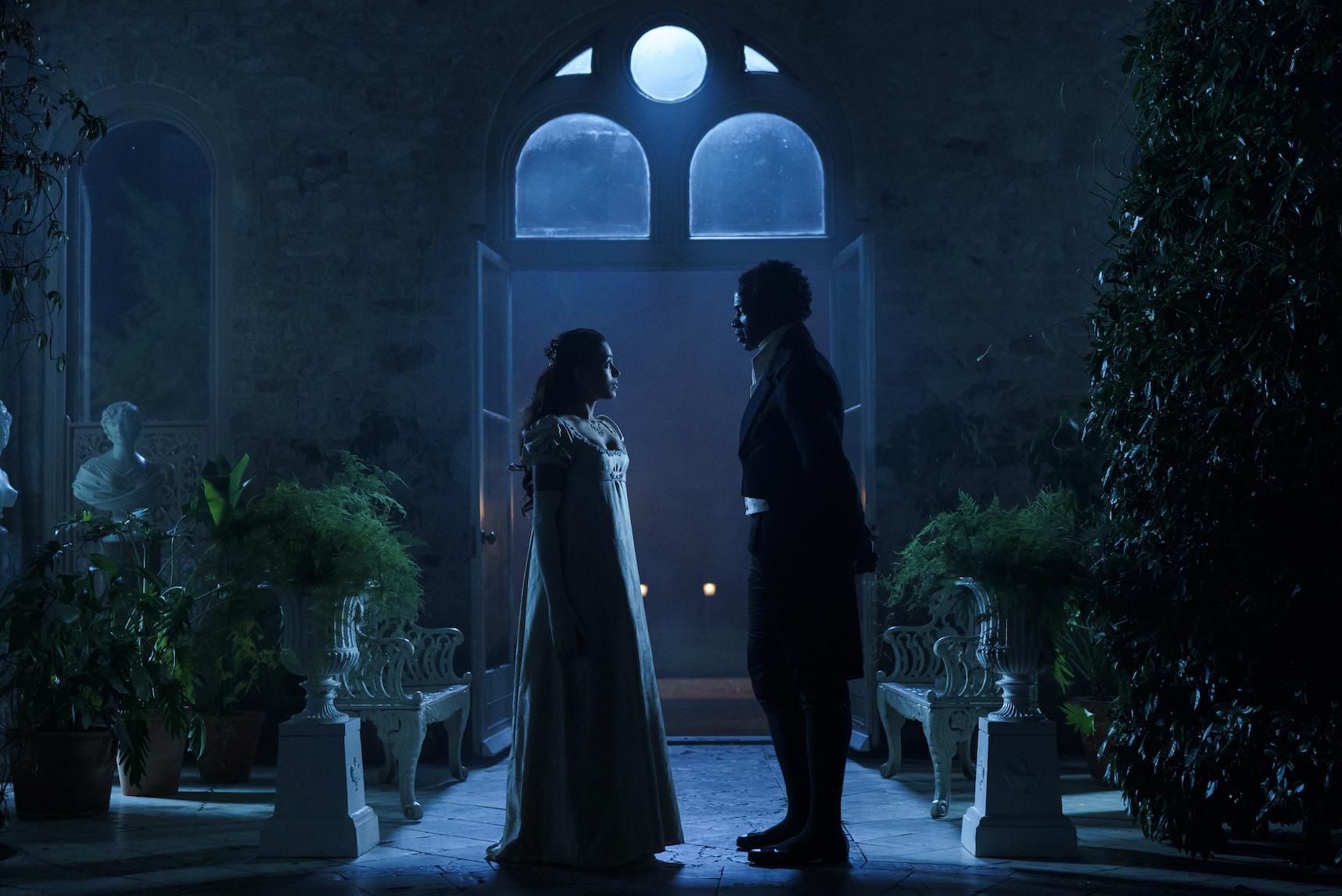Yes, Mr. Malcolm’s List is a romance set in the Regency period of British history…but a viewer can go deeper than just comparing it to Jane Austen. And yes, the casting is diverse, but the same goes for a Bridgerton comparison. Director Emma Holly Jones generated funding for this feature film by shooting a short film that was released in 2019 — prior to the premiere of Bridgerton — with much of the same cast.
So, let’s experience this story as its own entity and see what it has to offer. Which turns out to be quite a lot.
Based on a 2009 novel by Suzanne Allain, who also wrote the screenplay, the film follows Jeremy Malcolm (Sope Dirisu) as he searches for a bride based on a list of requirements. When Julia Thistlewaite (Zawe Ashton) doesn’t meet those requirements, she enlists her friend Selina Dalton (Freida Pinto) to serve Mr. Malcolm a taste of his own medicine.
Of course, things don’t go as planned.
Romance, some laughs, and beautiful things to look at: Mr. Malcolm’s List adds up to a delightful escape that most of us can use right now.

“I was lonely, too, before you came.”
Romance is a genre that works, a least in part, because of predictability. We know that happy ending is coming, and we wouldn’t be satisfied if it didn’t. The fun and chemistry on the way there is where these stories distinguish themselves from each other.
Mr. Malcolm’s List sets up charming and often humorous supporting characters around an emotional central love story. Ashton’s Julia kickstarts the plot and dares to be unlikeable at first. But she is also dynamic, growing into a better person. Oliver Jackson-Cohen‘s Lord Cassidy is a character who ingratiates himself with everyone. The actor’s natural rapport with others carries this off.
Speaking of chemistry, Dirisu and Pinto have it — starting with their characters’ first conversation. This moment is not part of Julia’s plan, so it forges a natural connection. One which deepens through more substantive discussions. And a croquet lesson. And a masquerade waltz. Until the final swoon-worthy scene.
Comedy may be necessary for this genre, but it’s nice to see the filmmakers make sure that the interaction between its leads is taken seriously. The audience can tell what’s happening between these two characters is significant to them, and they are affected by it.

“Do you feel I deserve the reputation I have acquired?”
The story of Mr. Malcolm’s List takes advantage of the setting to examine the notion that public opinion had more of a place in people’s romantic lives in the past. And some characters need to realize that it shouldn’t. That’s part of the growth Malcolm goes through over the course of the plot: He needs to understand that his list is more of a defense mechanism than a helpful tool. Then, he’ll make progress toward happiness. And he’ll truly be able to love and be loved in return. A similar lesson is in store for Julia, who has to become less concerned with appearances.
The filmmakers don’t have to worry about how their movie looks because they’ve done superb work. Locations and sets please the eye, and the costumes are amazing. This is impressive, especially on what must have been a modest budget. The cinematography makes it all glow. I also felt the music set the right mood at important moments. All these pieces contribute to the way a period romance can allow the viewer to escape reality for a short while.
Sometimes, all we can ask entertainment for is a positive resolution for characters we care about. And Mr. Malcolm’s List leaves you with a smile on your face.
4 stars out of 5
Mr. Malcolm’s List is now in theaters.

